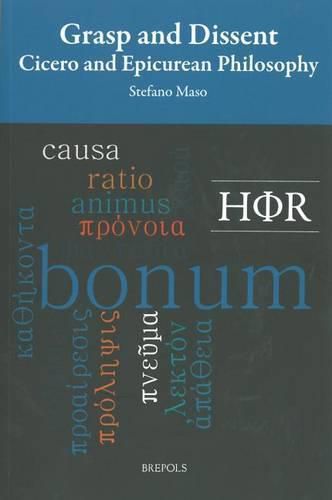Readings Newsletter
Become a Readings Member to make your shopping experience even easier.
Sign in or sign up for free!
You’re not far away from qualifying for FREE standard shipping within Australia
You’ve qualified for FREE standard shipping within Australia
The cart is loading…






The present study centers on the distinctive characteristics of Cicero’s philosophical training; for the first time in a volume, the Roman philosopher’s relationship with Epicurean philosophy is accurately recreated. Not only does Cicero exhibit his lofty philosophical proficiency anchored in the Academic school, but he also proves an excellent authority on Epicurus’s proposed philosophy. At the conclusion of the research, of course, Cicero will prove to be a fierce opponent of Epicureanism - an intelligent adversary, capable of studiose dicere contra Epicurum: understanding and criticizing, but also (and this is surely quite important for us today) reiterating the opposing party’s thought with great acumen. Epicureanism accordingly played a pivotal role in Cicero’s philosophical development within the fields of physics, theology and ethics, paradoxically proving useful both in the formulation of a more skeptical and probabilistic philosophy and in the individuation of a path open to but even more strongly bound to Stoicism. Unyielding and dogmatically binding, Epicurus’s doctrine endured throughout this dramatic historical moment situated at the end of the Roman Republic.
$9.00 standard shipping within Australia
FREE standard shipping within Australia for orders over $100.00
Express & International shipping calculated at checkout
The present study centers on the distinctive characteristics of Cicero’s philosophical training; for the first time in a volume, the Roman philosopher’s relationship with Epicurean philosophy is accurately recreated. Not only does Cicero exhibit his lofty philosophical proficiency anchored in the Academic school, but he also proves an excellent authority on Epicurus’s proposed philosophy. At the conclusion of the research, of course, Cicero will prove to be a fierce opponent of Epicureanism - an intelligent adversary, capable of studiose dicere contra Epicurum: understanding and criticizing, but also (and this is surely quite important for us today) reiterating the opposing party’s thought with great acumen. Epicureanism accordingly played a pivotal role in Cicero’s philosophical development within the fields of physics, theology and ethics, paradoxically proving useful both in the formulation of a more skeptical and probabilistic philosophy and in the individuation of a path open to but even more strongly bound to Stoicism. Unyielding and dogmatically binding, Epicurus’s doctrine endured throughout this dramatic historical moment situated at the end of the Roman Republic.